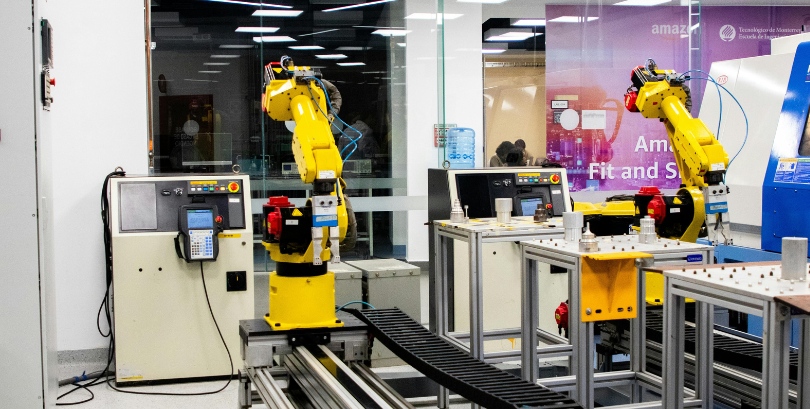The world hums with the rhythm of innovation. Every day, it seems, a new gadget, a groundbreaking algorithm, or a paradigm-shifting platform emerges, promising to reshape how we live, work, and interact. But in this relentless torrent of technological advancements, it’s easy to feel overwhelmed, lost in a sea of jargon and hype. Welcome to Tech Insights, your compass in this ever-evolving digital landscape. Here, we don’t just report on the latest trends; we delve deeper, asking the critical questions and offering insightful perspectives to help you navigate the future.
The AI Elephant in the Room: Beyond the Buzzwords
Artificial intelligence. It’s the term on everyone’s lips, from boardroom discussions to casual coffee chats. But beyond the promises of self-driving cars and hyper-personalized experiences, what are the real implications of AI?
- Question: How will the increasing sophistication of AI truly impact the job market? Will it lead to mass unemployment, or will it create new roles we can’t even imagine yet?
Insight: While fears of widespread job displacement are understandable, history suggests that technological revolutions often lead to a transformation of labor rather than outright elimination. The focus will likely shift towards roles that require uniquely human skills like creativity, critical thinking, and emotional intelligence. The key lies in proactive reskilling and upskilling initiatives. - Question: What are the ethical considerations we need to address as AI becomes more integrated into our lives? How do we ensure fairness, transparency, and accountability in AI-powered systems?
Insight: Bias in training data can lead to discriminatory outcomes in AI applications. Establishing clear ethical guidelines, fostering diverse development teams, and implementing robust auditing mechanisms are crucial to building trustworthy and equitable AI. The conversation around AI ethics is not just for technologists; it requires input from policymakers, ethicists, and the public.
The Metaverse Mirage or the Next Reality?
The metaverse, a persistent, interconnected virtual world, has captured the imagination of many. But is it just a futuristic fantasy, or is it the next iteration of the internet?
- Question: What are the practical applications of the metaverse beyond gaming and social interaction? How will it revolutionize industries like education, healthcare, and commerce?
Insight: The potential of the metaverse extends far beyond entertainment. Imagine remote surgeries guided by experts across continents, immersive educational experiences that bring history to life, or virtual showrooms where you can interact with products before purchasing. The key lies in developing user-friendly interfaces, robust infrastructure, and compelling use cases that address real-world needs. - Question: What are the potential social and psychological impacts of spending significant time in virtual environments? How do we mitigate risks like social isolation and blurring the lines between the real and virtual?
Insight: As with any powerful technology, the metaverse comes with potential downsides. Promoting digital well-being, fostering responsible usage habits, and conducting thorough research on the psychological effects are essential to ensure a healthy and balanced integration of virtual worlds into our lives.
Cybersecurity: The Unsung Hero of the Digital Age
As our reliance on technology grows, so does the importance of cybersecurity. It’s the invisible shield protecting our data, our infrastructure, and our digital identities.
- Question: With cyber threats becoming increasingly sophisticated, how can individuals and organizations stay ahead of the curve? What are the essential security practices we should all adopt?
Insight: A multi-layered approach to security is crucial. This includes strong passwords, multi-factor authentication, regular software updates, and a healthy dose of skepticism towards suspicious emails and links. For organizations, investing in robust security infrastructure, employee training, and proactive threat detection is paramount. - Question: How will emerging technologies like quantum computing impact the future of cybersecurity? Are we prepared for a potential “quantum apocalypse” that could break current encryption methods?
Insight: While quantum computers are still in their early stages, their potential to crack existing encryption algorithms is a serious concern. Research and development in post-quantum cryptography are underway to develop new encryption methods that can withstand quantum attacks. Proactive planning and investment in these future-proof solutions are essential.
Your Thoughts Matter
Tech Insights is not just a one-way street. We believe in the power of conversation and diverse perspectives. What are the tech trends that have you intrigued or concerned? What questions are you grappling with in this rapidly evolving digital world? Share your thoughts and insights in the comments below – let’s learn and grow together as we navigate the exciting and sometimes daunting landscape of technology.
Tags:
Tech InsightsAuthor - Aiswarya MR
With an experience in the field of writing for over 7 years, I find my passion in writing for various topics including technology, business, creativity, and leadership. I have contributed content to hospitality websites and magazines. Currently looking forward to improving my horizon in technical and creative writing.



